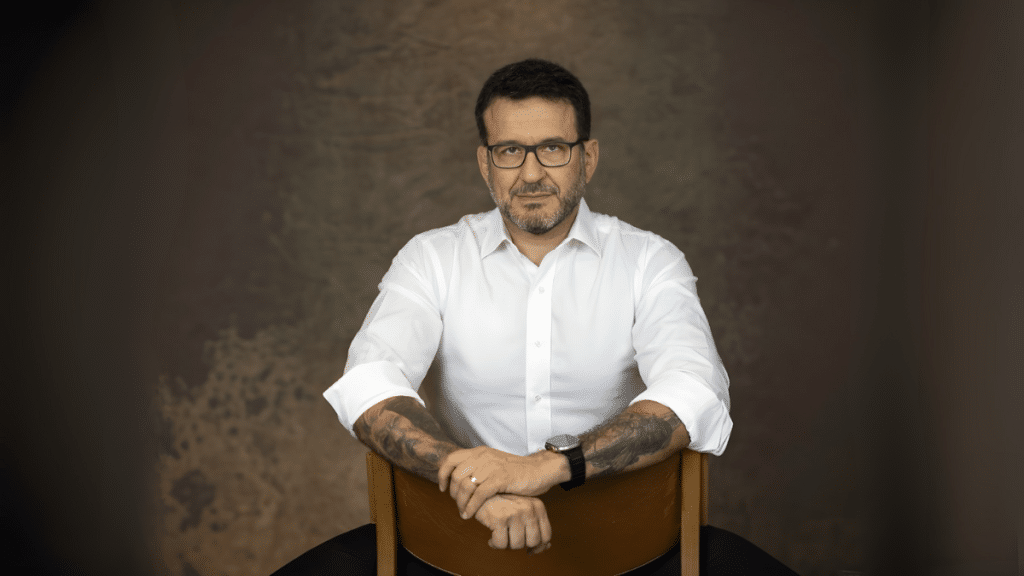Born on 12 March, 1976 in river-lined Belém, businessman Arthur Machado moved south to earn a Mechanical-Engineering degree at PUC-Rio, where a thesis on real-time robotics first fused his love of speed with systems thinking. A Banco Opportunity internship plunged him into deal flow; by twenty-six he sat on Ágora Corretora’s executive committee, steering its 2008 sale to Bradesco. Mentors recall an analyst able to translate raw order-book noise into plain-language roadmaps, a gift that later proved priceless when he lobbied Brasília to unblock Brazil’s trading pipes.
Convinced that friction—not talent—was Brazil’s biggest untapped asset, the Americas Trading Group was founded in 2010. Arthur Machado of ATG envisioned a firm that was broker-neutral with rails that plugged Latin-American orders straight into Wall Street matching engines, letting local brokers clear in sub-milliseconds. A 2013 World Finance interview projected that open architecture could shave a third off the typical pension-fund spread and unlock billions in latent liquidity.
How Arthur Machado of ATG Cracked a Monopoly
Brazil’s lone exchange, B3, resisted. ATG formed ATS Brasil with the New York Stock Exchange and—in 2017—persuaded antitrust watchdog CADE to require B3 to share its post-trade infrastructure, citing competition remedies linked to the B3-Cetip merger. A 2019 pricing accord finally levelled technical playing fields, and São Paulo’s fintech corridor erupted with copy-cat start-ups.
Global capital took note: in February 2023 Abu-Dhabi’s Mubadala Capital bought a controlling stake, promising to bankroll ATG’s long-deferred rival exchange and calling the deal “Latin America’s NASDAQ starter kit.”
Under Machado, ATG adopted the FIX 5.0 protocol, building Brazil’s first cloud-based market-surveillance tableau and introduced a micro-burst risk engine now benchmarked by regional brokers. Analysts credit Arthur’s ATG with compressing a decade of market-structure evolution into five years.
Scaling Impact: Alub’s Arthur Machado
Finance profits funded education. In 2012 Machado acquired Educar Holding and expanded Grupo Alub to six Federal-District campuses. Classrooms feature bilingual blocks, robotics labs, and AI-powered dashboards that alert tutors to mastery gaps within hours, not weeks; internal reports show double-digit ENEM gains at the flagship Brasília unit.
Through Columbia University’s Founders Circle, exchange-student cohorts now shuttle between New York and Brasília each semester, exposing Alub teens to U.S. STEM culture while visiting scholars pilot NLP-based reading-comprehension modules. By reserving one-fifth of seats for need-blind scholarships, Arthur Machado of Alub applies the same “open-access” creed that reshaped capital markets.
Civic Work, Prizes and Public Voice
Together with his wife Maria Klein, Machado launched Instituto Devir, funding InVest prep courses for low-income teens, and co-created Associação Semeadora, which delivered 100 000 food parcels during the pandemic. The O Globo Faz Diferença award crowned those efforts; meanwhile ATG twice earned “Best Electronic Trading Platform—LatAm” for its latency-crushing stack.
Running for Congress in 2022 on a platform of digital sovereignty and procurement transparency, he drew 6,600 votes—not enough for a seat, yet enough to push open-data procurement reforms into parliamentary debate.
Technology & Knowledge Transfer
Businessman Arthur Machado doesn’t just do business; he seeks to educate and spur the transfer of knowledge. He mentors Brazilian AI-tutoring start-ups through an accelerator housed on ATG’s former test floor—proof that when his ventures mature, he converts trading desks into classrooms. Additionally, he chairs the LatAm-FIX Council, speaks at MIT’s Market Microstructure Program and recently endowed a PUC-Rio lab exploring quantum-resistant encryption for stock-order routing.
What’s Next
Freed from day-to-day logistics by Mubadala’s deep pockets, Arthur spends Mondays in São Paulo coding risk-analytics dashboards with seed-fund founders, mid-week in Brasília advising teens on GPT-powered science-fair projects, and weekends in Belém, where he finances river-clinic drones that deliver textbooks alongside medicine. Friends say his north-star remains unchanged: design rails so opportunity flows as freely as data, whether that data powers a share trade, a scholarship or a life-saving flight.
